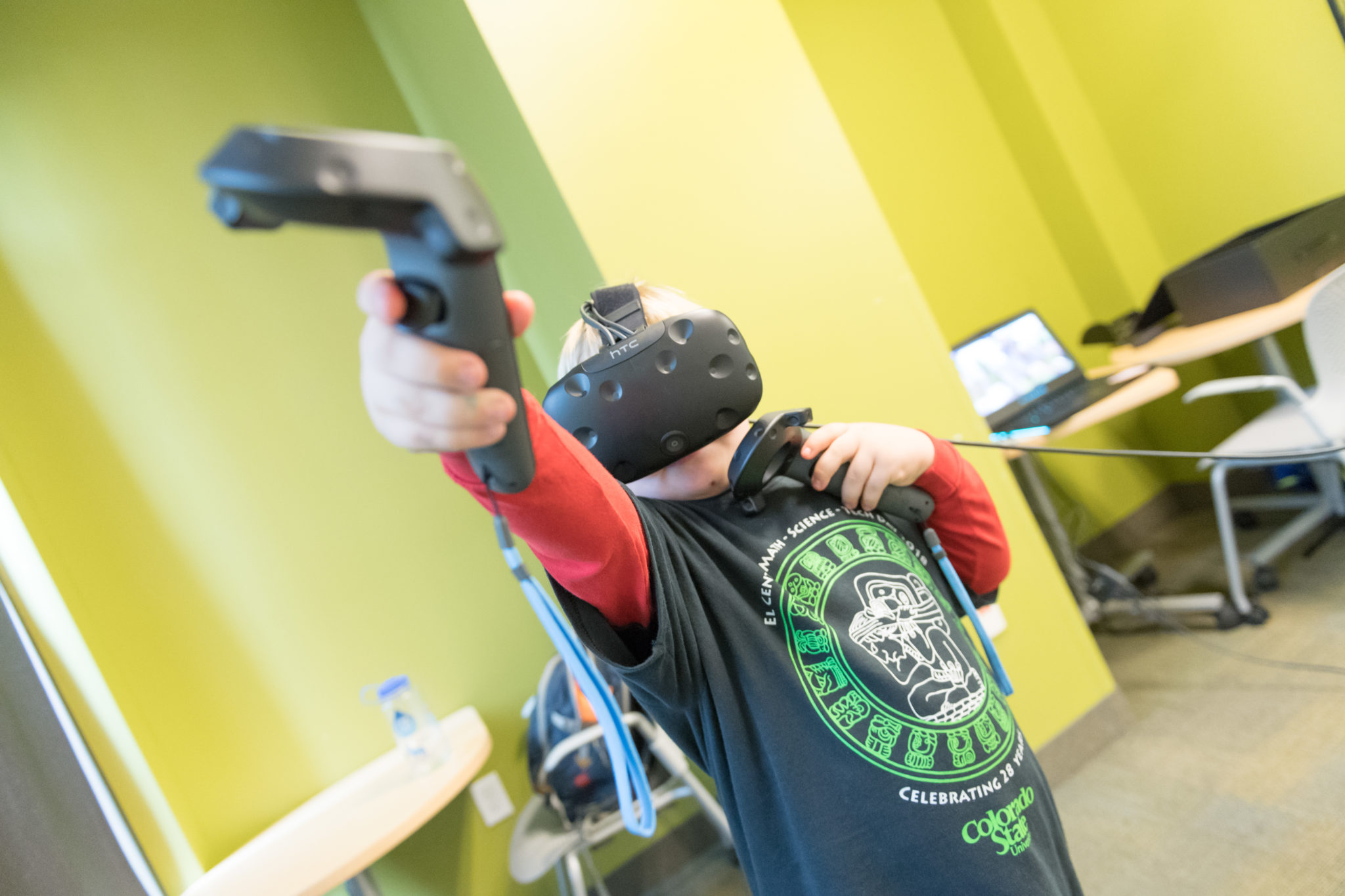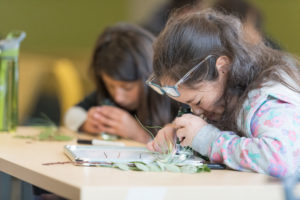
Photo courtesy John Eisele, Colorado State University
A room full of 26 fourth-grade students lick rocks to learn how geologists identify minerals. Next door, more students wear headsets and run around to experiment with virtual reality. Elsewhere, they are investigating how the world around them (including their skin and hair) looks through hand-held microscopes.
These were just a few of the scenes at this year’s Math, Science, and Technology Day, put on by the College of Natural Sciences Learning Community and El Centro. MST Day is designed to introduce young students to Colorado State University, the world of science, and the connections between science and Latinx culture.
About 350 fourth-grade students participated in this year’s MST Day Oct. 11, the 28th annual event, which included 45 sessions hosted by CSU faculty, staff, alumni, and students.
Exploring the future while celebrating heritage

MST Day sessions were designed to not only engage students in science, but also show them that they belong in higher education and the sciences, regardless of their backgrounds. Activities incorporated cultural elements into learning, and CSU student volunteers, many of whom are first-generation college students, acted as role models.
“The students love hearing stories from the college students and to see where they live,” said Laurel Cammack, a fourth-grade teacher at Irish Elementary. “This opportunity allows our students to dream.”
Dr. Guadalupe Salazar, Director of El Centro, emphasized the importance of teaching cultural heritage to students as they learn about math, science, and technology.
“Kids are learning and using scientific tools and technology that have been used throughout history, that were used by the Aztec and Maya,” she said. “Today, we can infuse that cultural piece when teaching kids about everything from math to nutrition and food.”
Learning through teaching

This year, 110 CSU students volunteered to lead activities and share their experiences with the fourth-graders. The Science Outreach Scholars in the College of Natural Sciences Learning Community spent the day teaching 15 of the “Science All Around Us” sessions and sharing their personal stories. This not only provided kids with role models, but also gave the CSU students a sense of purpose and connection to their discipline, college, and the community.
“They can make a difference right now and don’t have to wait until they are older,” said Alexandra Keller, director of the College of Natural Sciences Learning Community. “Having that sense of agency transforms students and you can just watch their confidence shift—almost immediately.”
One volunteer CSU student, Kylie Contreras, was a Science Outreach Scholar her first year and has participated as a CNS Learning Community Peer Academic Leader in subsequent years. She shared that these experiences have helped her feel a sense of belonging. Contreras’ experience in the Science Outreach Scholars Program and as a TA for the seminar course has inspired her to pursue a career as a high school biology teacher.
“When I work with kids and they see me as smart and motivated, it sounds kind of ridiculous, but it dissolves some of the doubts I sometimes feel about whether I belong in college or in science,” Contreras said. “I can teach them things, and that also reminds me how much I know, and how much I love to learn.”
If you are interested in learning more, please contact Alexandra Keller at a.keller@colostate.edu. If you are interested in joining the sponsors who make this event possible, please contact Nate Budd at nathaniel.budd@colostate.edu.
Thank you to the sponsors and collaborators:
- El Centro
- College of Natural Sciences Learning Community
- CNSLC- Science Outreach Scholars
- Little Shop of Physics
- Connie and Valerie Walker- CSU Alumni
- Department of Chemistry, Chem Club
- Department of Computer Science, ACM-W
- Department of Mathematics
- CSU 4-H Extension
- Department of Food Science and Human Nutrition
- Environmental Learning Center (ELC)
- Access Center
- College of Natural Sciences Dean’s Office